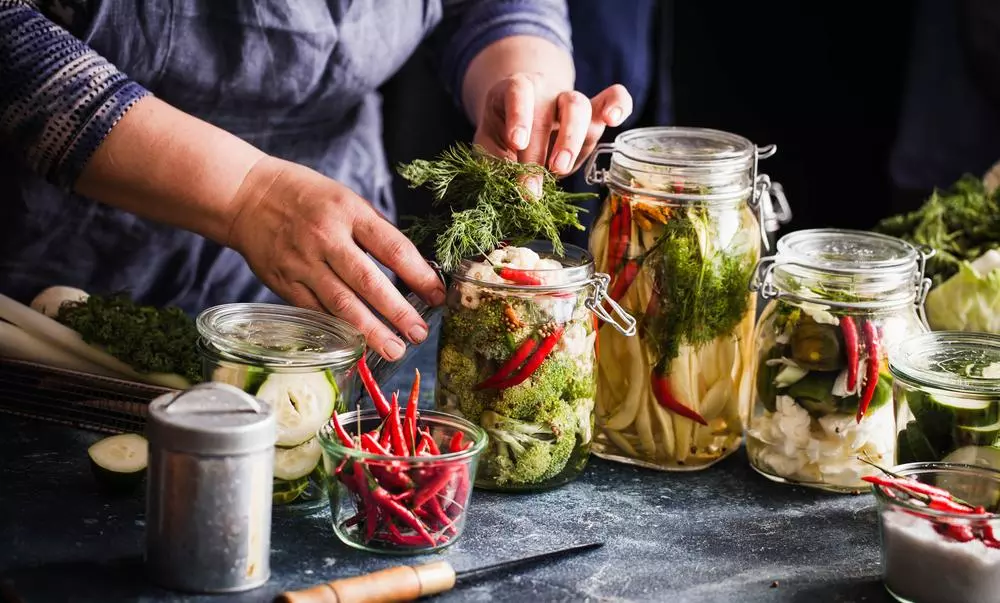Big on reduce-reuse-recycle? Here are a few tips on zero-waste cooking
Check out these practices on zero-waste cooking that can be exercised daily
- By Natasha KitturLoading...
- | 5 Jun 2022 10:00 AM IST
 X
X
Sustainable living is not a new concept. And definitely not in our country that has valued sustainability and minimalism for aeons. Our culture is rich with yogic values, one of which includes the concept of 'aparigraha' that talks about not forming attachments with material possessions and using it only in sufficient quantities and not more. However at some point, we may have lost our connection to these tenets and switched gears to buy, consume and store more.
In the face of scarcity, while some continue to abandon the idea of sustainability, many more are making the conscious effort to exercise zero-waste practices. And so, we decided to present you with a list of 10 simple habits that go a long way in minimising kitchen waste. From using all parts of fruits and vegetables to growing a few things easily at home, these tips are sure to help you build a more conscientious home and kitchen. Take a look.
1. Plan your meals
Planning is an essential step in almost everything we do, because that helps in making optimal use of resources at hand. In a similar fashion it is important that one plans their meals in order to avoid unnecessary wastage. To do this efficiently, prepare an itinerary of meals that employ perishable goods first and those with a longer shelf life later. This will help you utilise produce before it goes bad.
2. Make the most of your produce
Before discarding a part of a fruit, vegetable or meat, step back to think if it is possible to make use of the peels, offals or scraps in some way. Rather than peeling, look for ways where only scrubbing can do the trick, which is possible with veggies like carrots, radish and potatoes. Much of the flavours are typically in the peels, roots and stems and there are multiple recipes from across India that show you how to employ them. Such as this potato peel pie recipe, where potato peels are incorporated in the dish.
3. Opt for seasonal produce
While nature has its own succinct ways to provide for our needs, seasonal produce is greatly overlooked. It may be an exciting prospect if we could get mangoes all year, but seasonal produce is susceptible to certain amounts of degradation, even with the best cold storage and transportation. And more often than not, attempting to hoard seasonal produce is also what leads to massive wastage because the freezers in our homes are not equipped to keep such produce fresh for a long time. Instead, plan your menu around fruits and vegetables while they are still in season.
4. Reusing leftovers
Dealing with leftovers is a common problem in all households. Which is why this tip will also prove to be essential. Reusing or repurposing leftovers simply has to do with thinking of ways to turn last night's dinner to today's breakfast or lunch. And we promise, it's not as difficult as it sounds. To get you started, here's a list of our top favourite leftover recipes.
5. Don't hoard
While you may think buying everything at once to stock in the fridge for the long term is a good idea, there will always be that one product seated at the back of the fridge just decomposing. And you will then be left with no other option but to junk it, since it can no longer be consumed. Hence, the next time you make a trip to the supermarket, remember to buy on a weekly basis and do not purchase products with a short shelf-life in bulk.
6. Grow it yourself
Common ingredients in the Indian kitchen, such as curry leaves, coriander, mint, fenugreek, basil, chillies, lime and tomatoes are fairly easy to grow at home. All you need is a pot, some soil and the stems/seeds of these veggies. Cultivating a small kitchen garden can go a long way in building a sustainable home, and of course, the idea has some merit, else why would Oprah do it too? Plus, it's a great way to use up all your kitchen scrap, such as used tea leaves, egg shells and fruit and veggie peels as homemade compost.
7. Pickles, jams and preserves to the rescue
While we continue to practise buying goods in small quantities, at one point or another we have all faced a situation where we have too much of a product and have no idea how to utilise it before they go bad. Well this is where pickles, jams and preserves come to the rescue. Rather than racing against the shelf life of a product, all you need to do is convert these fruits or vegetables into jams or pickles. While strawberries themselves may not last long, strawberry jam definitely has a greater shelf life, which can also be extended when refrigerated. And we all know the deal with pickles. Stored properly, pickles have a long shelf life and a bonus point is the older the pickle the better it tastes.
Let us know how you have been implementing zero-waste cooking in your daily life.

Natasha Kittur
Natasha Kittur is an aspiring writer. Her love for anything with cheese and spice is profound, but a white sauce pasta always tops her list. In her free time you will catch her reading or watching crime books and shows or go on and on about psychological experiments and theories. She aims to write a book in the fictional genre someday.


